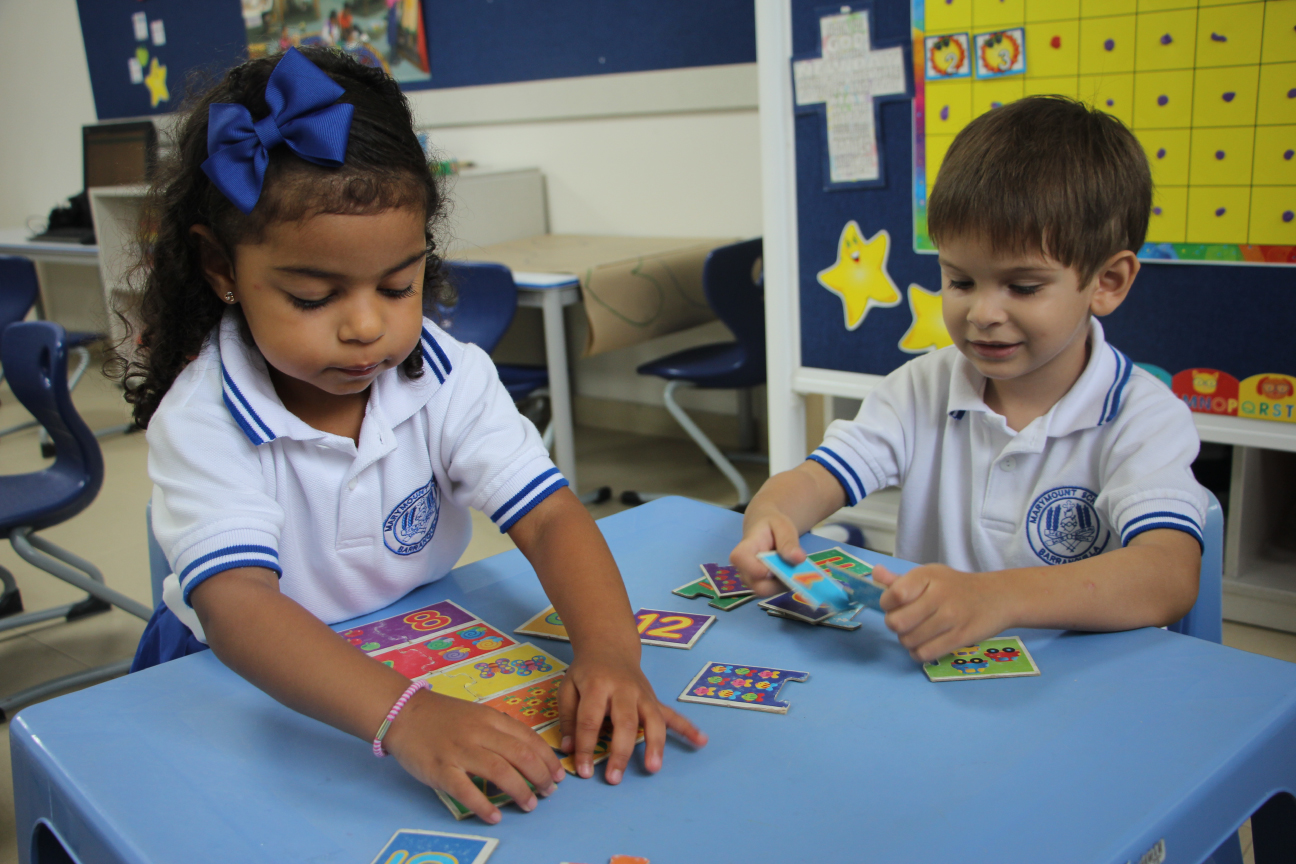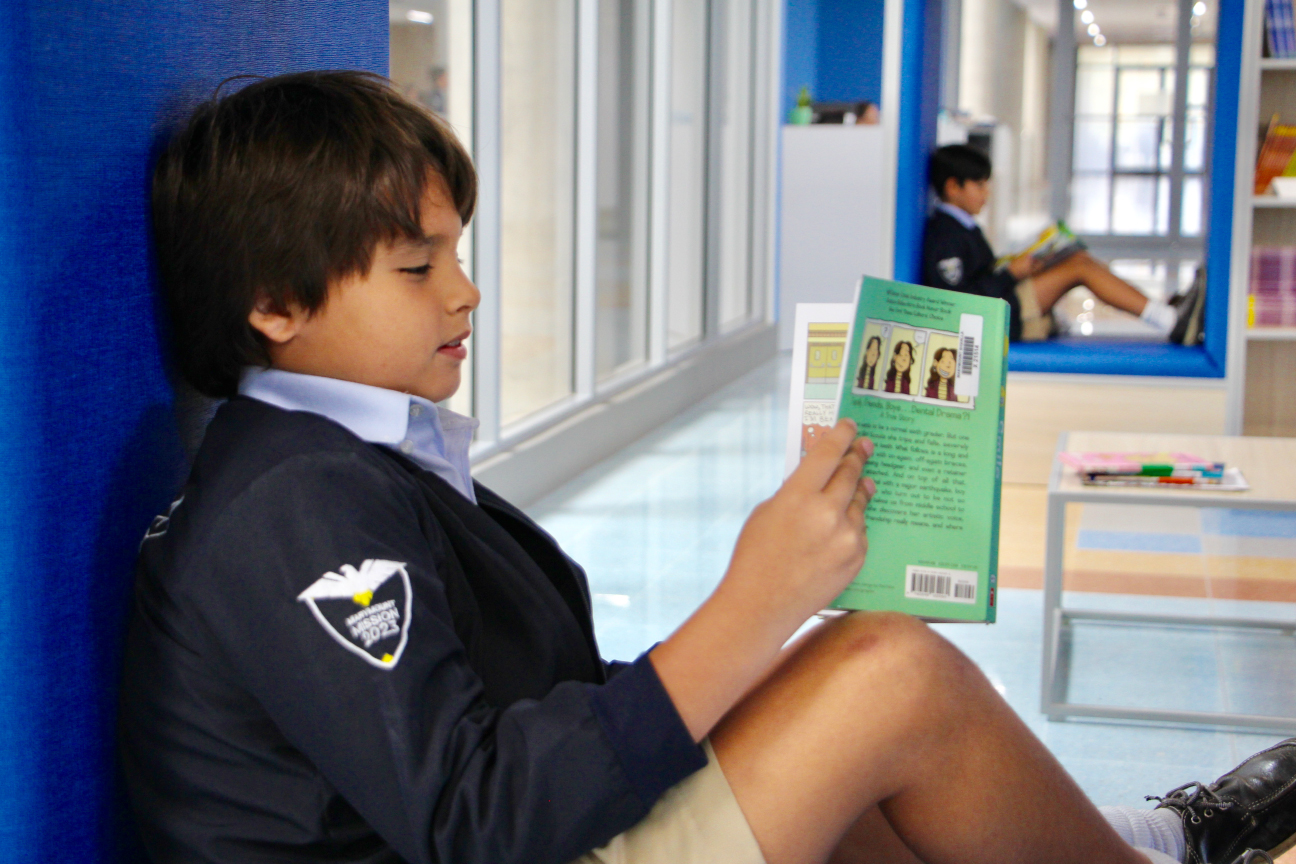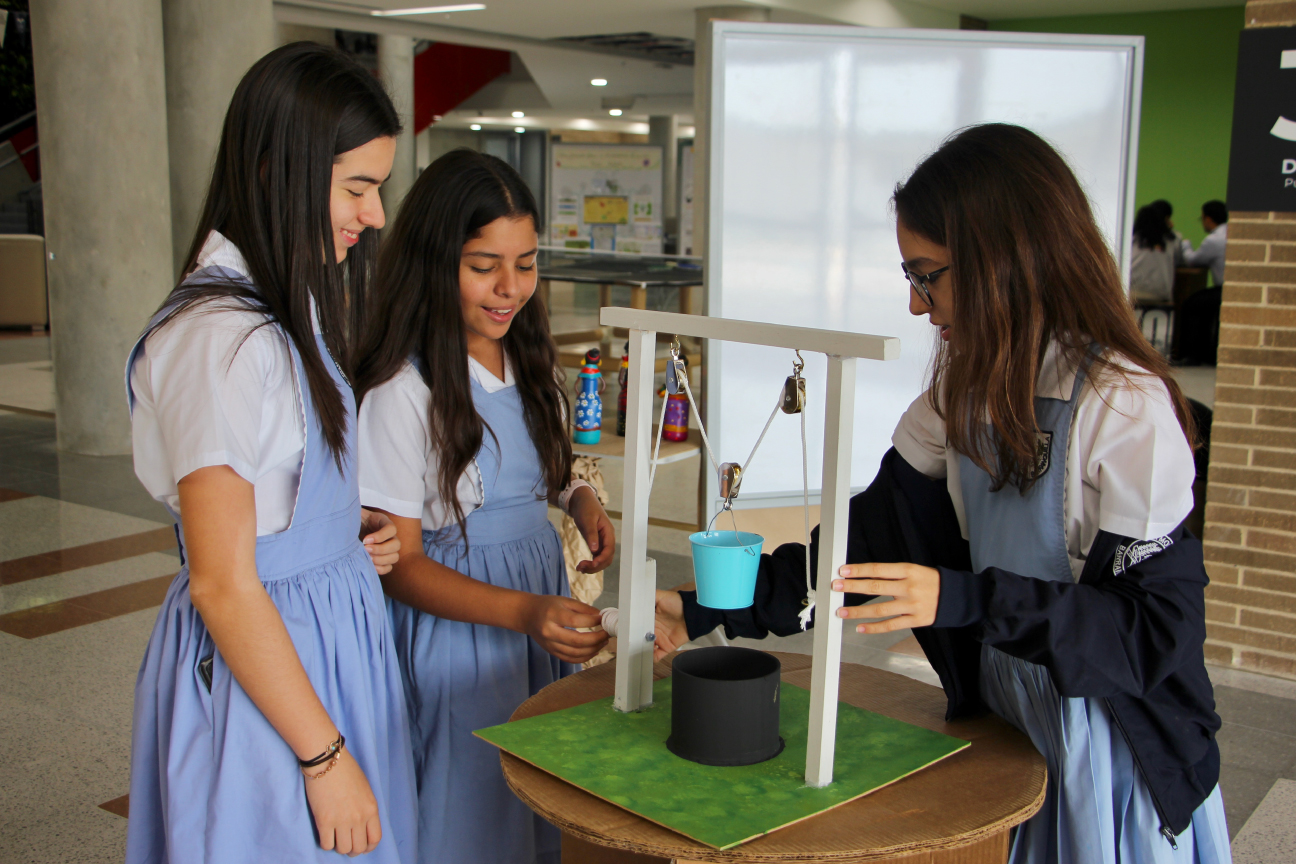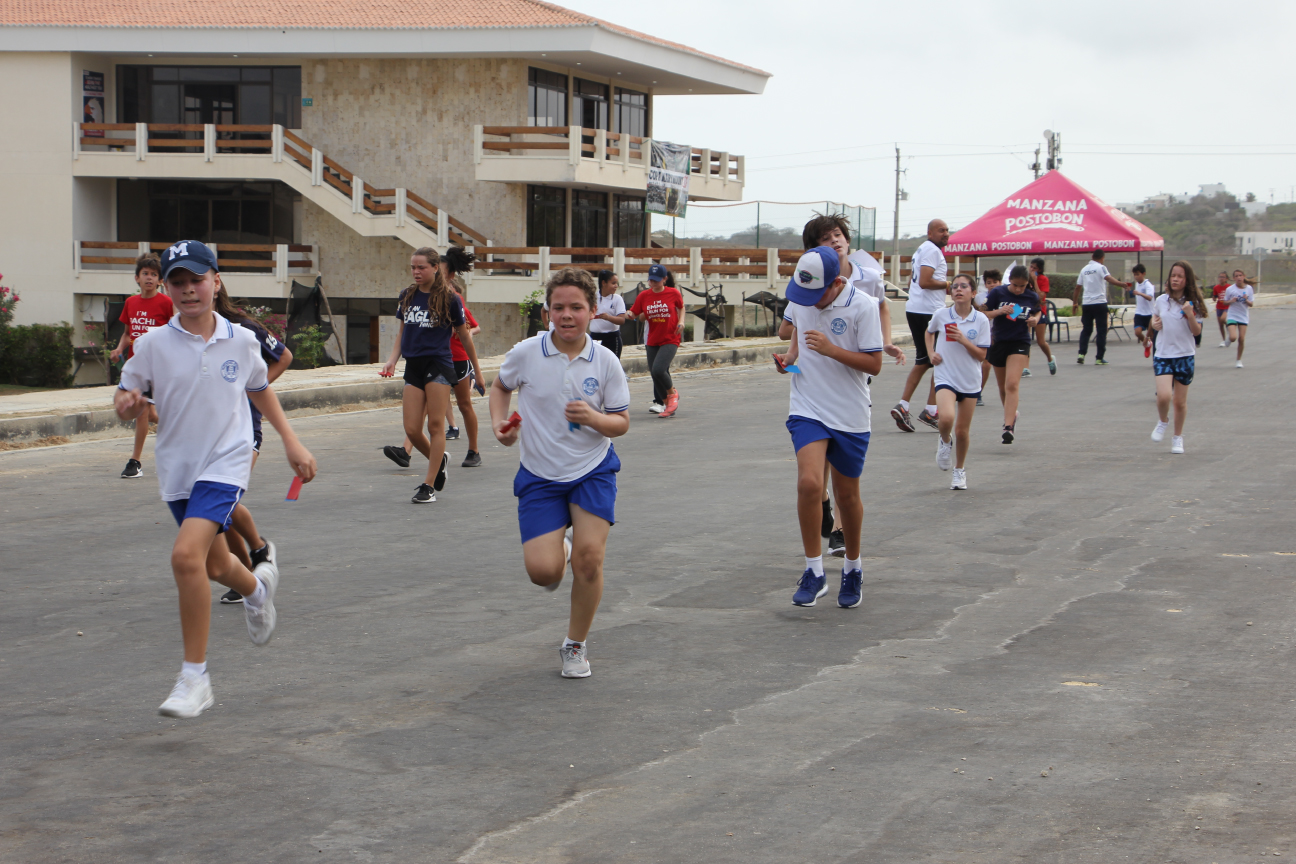Methodologies
Marymount Barranquilla develops entrepreneurial leadership and global competence in its educational community by implementing a set of methods that adhere to what research indicates are the best teaching methodologies around the world:
Project Based Learning (PBL)
Learning based on projects and/or problems
Connection Based Learning (CBL)
Learning based on connections
Service Learning (SL)
Learning through service
Learning based on inquiry-research
Flipped Classroom
Cooperative Learning
Gamification
Design Thinking
Blended Learning
Academic Programs
In some subjects, the syllabus is organized according to the following programs established by the school:

Cambridge: Global Competence, English, Science and Math
Cambridge is a curriculum framework that offers a detailed path for student learning from kinder through 12th grade and includes essential aspects from each field of knowledge in which it is applied; the five elements of the Cambridge system are:
- Curriculum
- Teaching-Learning Practices
- Assessment Practices
- International Recognition
- Participation in the Global Community


Balanced Literacy: For language teaching, English and Spanish
Balanced Literacy is a program that addresses language teaching in its different components: Reading, writing, oral fluency, listening ability and grammar. It is different from the traditional way of teaching because each language component is of crucial importance and, at the same time, none of the components prevent or slow down the development of the other. The goal of the program is to guide the student to be competent in communication skills and the natural adoption of a reading habit for the rest of his/her life.
It is developed through six components:
It is complemented by resources and spaces such as:
- Read aloud
- Shared Reading
- Reading Workshop
- Writing Workshop
- Work Study
- Conferring - conferences with the teacher
It is complemented by resources and spaces such as:
- Readers Program "Plan Lector": Consists of reading four books in Spanish and four in English an academic year; aligned to the curriculum contents of the language class and on a free choice basis for the student among a variety of options.
- Classroom Libraries: Collection of books available in the classrooms for all students to be able to complete the reading of at least 2 books in addition to the annual choices of the "Plan Lector".
- DEAR Time: Free space for reading in preschool and elementary school where students can choose what they want to read from the classroom libraries or online libraries without having to respond to an instructional purpose assigned by the teacher.
- WOW Time: Structured reading of global and/or current news in Elementary School.
- RAZKIDS: Online resource for teaching reading in English and Spanish through an online library.
- SCHOLASTIC: Online library with thousands of books.

Harvard's Project Zero: All subjects
This approach based on the model Teaching for Understanding from Harvard University's Faculty of Education Project Zero defines comprehension as the ability of the student to transfer his/her skills and knowledge to different daily situations. It is a process-based instruction that develops the ability to resolve problems, promotes critical, creative and meta-cognitive thinking, as well as the planning, monitoring, and assessment of one's language.

P.E Metrics: Physical Education
Through physical education the students acquire motor skill abilities, strengthen body control and explore sports through its study and practice. The school aims to contribute to the education of young individuals who are confident and that are able to realize themselves as physically, socially, morally and spiritually healthy individuals.


